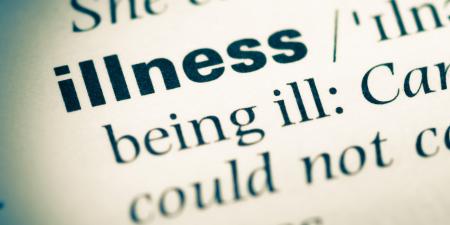Defining Medicalization
As Sadler and colleagues [1] define it, “‘medicalization’ describes a process by which human problems become defined and treated as medical problems” [2]. According to Conrad and colleagues [3], medicalization, like globalization or secularization, is neither good nor bad; it merely notes that a condition has come under medical jurisdiction. Others suggest that the term does imply something suspect—that a normal variation in health or behavior has been annexed, in whole or in part, by the apparatus of medicine [3].
The Medicalization of Obesity
Research published within the past few years suggests an explosion in the treatment of conditions that previously had been subjects of “watchful waiting” or nonpharmacologic approaches [4]. Examples of medicalized disorders include menopause, alcoholism, attention deficit hyperactivity disorder (ADHD), posttraumatic stress disorder (PTSD), anorexia, infertility, sleep disorders, and erectile dysfunction (ED) [3].
For example, morbid obesity, which requires surgical treatment, is already recognized as a disease. But medicalization may lower the threshold between what is held as “common” overweight and morbid obesity, increasing the number of people who are viewed as sick. Considering obesity as a disease may therefore have consequences for the individuals affected, society, and the health care system [5].
Effects on the Individual
Individuals hold some responsibility in the development of many conditions (e.g., high cholesterol, lung cancer, sports injuries), yet routinely receive medical treatment without being questioned about their lifestyles [5]. Discrimination against those with obesity, on the other hand, has been documented in many countries and in many areas of life, for example, work [6], relationships, health care [7], education, and the media [5, 8, 9].
Medicalization may reduce social discrimination by emphasizing that some of the causes of obesity are outside individual control [8]. Inasmuch as discrimination on the basis of disease or disability is considered unacceptable, medicalization may advance the rights of the obese [5]. It may also reduce stigma among health care professionals by changing views on etiology [5]. Physicians, who often share the negative biases of society as a whole about obese patients [7, 10-12], usually consider the treatment of the causes of illness to be standard medical practice [5, 13].
While medicalization may bring benefits to obese individuals, it will also label all of them “sick,” regardless of the rest of their health status [5]. In this way, it might be harmful to those who don’t see themselves as ill or who don’t try (or want) to lose weight [14]. However, when considered against the effects of widespread and well-documented prejudice, stigmatization, and discrimination [15, 16], gains from the medicalization of obesity might offset potential harms [5].
This perspective is in agreement with the findings of a panel of obesity experts [17] who “concluded that considering obesity a disease is likely to have far more positive than negative consequences and to benefit the greater good” [18].
Implications for Treatment
This same panel also concluded that categorization of obesity as a disease by the federal government and the medical establishment could lead to a fundamental change in treatment paradigms and have a profound effect on the care of obese patients [17].
If the time and effort required to engage patients in treatment protocols were reflected in remuneration for doing so, clinicians would be far more likely to do so than they currently are [17]. If physicians routinely undertook treatment for obesity, the pharmaceutical industry would be more inclined to develop new and better obesity drugs, and the FDA would come under more pressure to approve them [17].
According to the panel, FDA guidelines for approval of obesity drugs might well be altered to give less importance to metabolic biomarkers (blood pressure, triglycerides, cholesterol) and more to the loss of adipose tissue itself or particular deposits of adipose tissue that have deleterious effects on many physiological functions [17].
Effects on Medical Education
Medicalization of obesity could have an effect on the education of physicians. Currently, the subject receives little time or attention in medical schools, and the time it does receive focuses on obesity as a lifestyle issue rather than a physiological problem [17]. A greater investment in obesity education would change physicians’ attitudes towards the illness and how it is treated. Obesity surgery and medical approaches, especially drug therapy, would be given more attention by physicians, health administrators, health insurance companies, and employers, resulting in more access to quality care [17].
Economic and Policy Implications
These changes, however, could trigger a backlash, particularly if they led to more aggressive drug treatment. Some observers have raised concerns that medicalization is an overexpansion of medicine’s domain and a mechanism by which the pharmaceutical industry can increase markets, thus contributing to rising health care costs [3, 19, 20]. Future development of drugs for the treatment of obesity will be dependent on whether they can survive review for safety and effectiveness. The Food and Drug Administration continues to be highly concerned that proposed obesity drugs increase cardiovascular or other risks and may require changes to clinical research protocols [21].
Recent estimates put the cost of twelve medicalized conditions, for which medicalization has been documented and cost estimated, at $77.1 billion in annual health care spending, or close to 4 percent of national health care expenditures [3]. This figure is greater than the estimated 3 percent spent on public health in 2005 [22], raising the question of whether such spending is appropriate. The finding also focuses attention on whether policies should be put in place to curb the growth, or even decrease the amount, of spending, on medicalized conditions [3].
In addition to increased cost, medicalized obesity might also encounter the same obstacles that addiction treatment has—lack of parity in payment—i.e., insurance coverage for the treatment of obesity not on a par with that for the care of other medical illnesses [23]. With addiction, the achievement of parity required congressional legislation as well as a paradigm shift in the understanding of addiction as a biological illness. It took many developments in science and policy changes by professional organizations and governmental entities to make that shift. And the changes have yet to bring addiction medicine fully into the mainstream of the nation’s health care delivery system [23].
Access to adequate medical treatment for patients must acknowledge that this biological illness is widespread, that it is important that it be treated effectively, that appropriate third-party payment for physician-provided or physician-supervised addiction treatment is critical for addiction medicine to become part of the mainstream of our nation’s health care delivery system, and that medical specialty care provides the most effective benefit to patients and therefore our society.
Obesity is one of the most deadly public health crises of the 21st century. Globally, at least 2.8 million adults die each year as a result of being overweight or obese [24]. In the United States, it’s the second leading cause of preventable death, with an estimated $147 billion in associated medical costs per year [25]. Still, questions surround its status as a disease.
At the recent United Nations high-level conference on noncommunicable diseases (NCDs), delegates recognized that many chronic disease risk factors were driven by obesity [26], but they failed to number it among four groups of NCDs—cardiovascular diseases, cancers, chronic respiratory diseases, and diabetes—designated for development of action plans to combat them by 2012 [27].
In 2004, George Bray called obesity a chronic, relapsing neurochemical disease with an etiology and a pathogenesis [27]. In doing so, he medicalized it, putting it under the purview of doctors and other health professionals to study, diagnose, prevent, or treat. Recently, the American Association of Clinical Endocrinologists (AACE) [25] did likewise, announcing that obesity is not just a condition, but a disease state. Prior to that statement, the group viewed it as “the consequence of consistently poor lifestyle choices” [25].
The AACE found that “sufficient evidence has accumulated to implicate a number of heterogeneous hormonal and regulatory disorders in the pathogenesis and progression of the obese state—enough to justify multiple therapeutic interventions, including nutritional, pharmacological, and surgical” [25].
The AACE has recognized the need to call obesity a disease. In 1987 a coauthor and I proposed that the goal of obesity treatment should be medically significant weight loss rather than “ideal body weight,” changing the criteria for the treatment and diagnosis of obesity and substantially improving evaluation programs as well as patient outcomes [28]. In 1998, the National Heart, Lung, and Blood Institute guidelines established an initial goal for weight loss (the panel recommends the loss of 10 percent of baseline weight at a rate of 1 to 2 pounds per week and the establishment of an energy deficit of 500 to 1,000 kcal per day) [29]. And in 2004 Jeffrey Flier, now dean of the Harvard Medical School, described the pathophysiology of the disease of obesity, concluding that to cease the search for safe and effective medication would be to abandon a major segment of the population to an unhealthy fate [30]. Given the ever-rising costs associated the condition and its associated comorbidities, perhaps it’s time for the rest of us to recognize obesity as a medical problem as well.
References
- Sadler JZ, Jotterand F, Lee SC, Inrig S. Can medicalization be good? Situating medicalization within bioethics. 2009;30(6):411-425.
-
Sadler, Jotterand, Lee, Inrig, 412.
- Conrad P, Mackie T, Mehrotra A. Estimating the costs of medicalization. Soc Sci Med. 2010;70(12):1943-1947.
-
Fairman KA, Curtiss FR. Does medicalization of life imperil health? Expanding indications for diagnosis and treatment of chronic “disease.” J Manag Care Pharm. 2011;17(6):469-480.
- Saarni SI, Anttila H, Saarni SE, et al. Ethical issues of obesity surgery--a health technology assessment. Obes Surg. 2011;21(9):1469-1476.
- Giel KE, Thiel A, Teufel M, Mayer J, Zipfel S. Weight bias in work settings - a qualitative review. Obes Facts. 2010;3(1):33-40.
- Cheskin LJ, Kahan S, Geller G. Weight-based stigma and physician bias. Virtual Mentor. 2010;12(4):258-262.
- Puhl RM, Heuer CA. The stigma of obesity: a review and update. Obesity (Silver Spring). 2009;17(5):941-964.
- Puhl R, Brownell KD. Bias, discrimination, and obesity. Obes Res. 2001;9(12):788-805.
- Schwartz MB, Chambliss HO, Brownell KD, Blair SN, Billington C. Weight bias among health professionals specializing in obesity. Obes Res. 2003;11(9):1033-1039.
- Huizinga MM, Cooper LA, Bleich SN, Clark JM, Beach MC. Physician respect for patients with obesity. J Gen Intern Med. 2009;24(11):1236-1239.
- Hebl MR, Xu J. Weighing the care: physicians’ reactions to the size of a patient. Int J Obes Relat Metab Disord. 2001;25(8):1246-1252.
- Ogden J, Flanagan Z. Beliefs about the causes and solutions to obesity: a comparison of GPs and lay people. Patient Educ Couns. 2008;71(1):72-78.
- de Vries J. The obesity epidemic: medical and ethical considerations. Sci Eng Ethics. 2007;13(1):55-67.
- Ells LJ, Lang R, Shield JP, et al. Obesity and disability - a short review. Obes Rev. 2006;7(4):341-345.
- Atlantis E, Baker M. Obesity effects on depression: systematic review of epidemiological studies. Int J Obes (Lond). 2008;32(6):881-891.
- Allison DB, Downey M, Atkinson RL, et al. Obesity as a disease: a white paper on evidence and arguments commissioned by the Council of the Obesity Society. Obesity (Silver Spring). 2008;16(6):1161-1177.
-
Allison, Downey, Atkinson, 1162.
-
Moynihan R, Cassels A. Selling Sickness: How the World’s Biggest Pharmaceutical Companies Are Turning Us All into Patients. New York: Nation Books; 2005.
-
Moynihan R. Medicalization. A new deal on disease definition. BMJ. 2011;342:d2548.
-
Downey M, Still C, Sharma AM. Is there a path for approval of an antiobesity drug: what did the Sibutramine Cardiovascular Outcomes Trial find? Curr Opin Endocrinol Diabetes Obes. 2011;18(5):321-327.
- Budetti PP. Market justice and US health care. JAMA. 2008;299(1):92-94.
- Roy K, Miller M. Parity and the medicalization of addiction treatment. J Psychoactive Drugs. 2010;42(2):115-120.
-
World Health Organization. Obesity and overweight: fact sheet no. 311. http://www.who.int/mediacentre/factsheets/fs311/en/. Accessed October 2, 2011.
-
American Association of Clinical Endocrinologists (AACE) declares obesity a disease state [news release]. Jacksonville, FL: American Association of Clinical Endocrinologists (AACE); July 29, 2011. http://media.aace.com/article_display.cfm?article_id=5075. Accessed October 2, 2011.
-
Non-communicable diseases deemed development challenge of “epidemic proportions” in political declaration adopted during landmark General Assembly meeting [news release].New York: United Nations; September 19, 2011. http://www.un.org/News/Press/docs/2011/ga11138.doc.htm. Accessed October 2, 2011.
- Bray GA. Obesity is a chronic, relapsing neurochemical disease. Int J Obes Relat Metab Disord. 2004;28(1):34-38.
- Blackburn GL, Kanders BS. Medical evaluation and treatment of the obese patient with cardiovascular disease. Am J Cardiol. 1987;60(12):55G-58G.
-
National Heart Lung and Blood Institute, National Institute of Diabetes and Digestive and Kidney Diseases. Clinical guidelines on the Identification, Evaluation, And Treatment of Overweight and Obesity in Adults: The Evidence Report. National Institutes of Health; 1998. http://www.nhlbi.nih.gov/guidelines/obesity/ob_gdlns.pdf. Accessed November 16, 2011.
- Flier JS. Obesity wars: molecular progress confronts an expanding epidemic. Cell. 2004;116(2):337-350.



